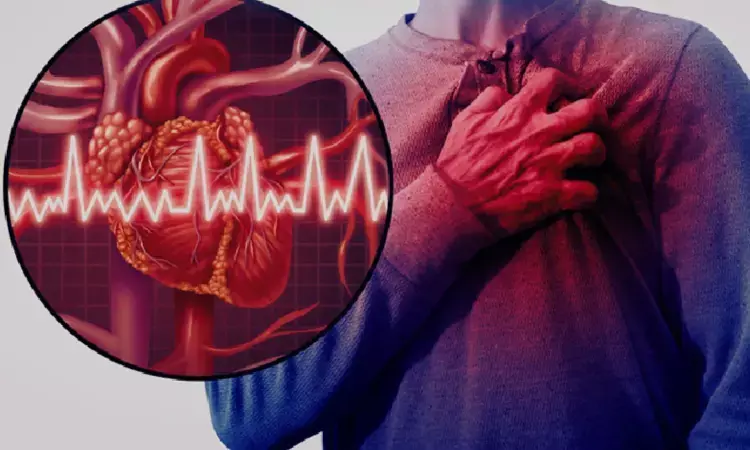- Home
- Medical news & Guidelines
- Anesthesiology
- Cardiology and CTVS
- Critical Care
- Dentistry
- Dermatology
- Diabetes and Endocrinology
- ENT
- Gastroenterology
- Medicine
- Nephrology
- Neurology
- Obstretics-Gynaecology
- Oncology
- Ophthalmology
- Orthopaedics
- Pediatrics-Neonatology
- Psychiatry
- Pulmonology
- Radiology
- Surgery
- Urology
- Laboratory Medicine
- Diet
- Nursing
- Paramedical
- Physiotherapy
- Health news
- Fact Check
- Bone Health Fact Check
- Brain Health Fact Check
- Cancer Related Fact Check
- Child Care Fact Check
- Dental and oral health fact check
- Diabetes and metabolic health fact check
- Diet and Nutrition Fact Check
- Eye and ENT Care Fact Check
- Fitness fact check
- Gut health fact check
- Heart health fact check
- Kidney health fact check
- Medical education fact check
- Men's health fact check
- Respiratory fact check
- Skin and hair care fact check
- Vaccine and Immunization fact check
- Women's health fact check
- AYUSH
- State News
- Andaman and Nicobar Islands
- Andhra Pradesh
- Arunachal Pradesh
- Assam
- Bihar
- Chandigarh
- Chattisgarh
- Dadra and Nagar Haveli
- Daman and Diu
- Delhi
- Goa
- Gujarat
- Haryana
- Himachal Pradesh
- Jammu & Kashmir
- Jharkhand
- Karnataka
- Kerala
- Ladakh
- Lakshadweep
- Madhya Pradesh
- Maharashtra
- Manipur
- Meghalaya
- Mizoram
- Nagaland
- Odisha
- Puducherry
- Punjab
- Rajasthan
- Sikkim
- Tamil Nadu
- Telangana
- Tripura
- Uttar Pradesh
- Uttrakhand
- West Bengal
- Medical Education
- Industry
Women With Diabetes Face Higher Risk of Kidney Injury After Heart Attack, Study Finds

China: A new study published in Frontiers in Endocrinology highlights significant sex-related differences in the risk of acute kidney injury (AKI) among patients with acute myocardial infarction (AMI) complicated by type 2 diabetes mellitus (T2DM). The findings emphasize the importance of sex-specific monitoring and management strategies in this vulnerable group.
- AKI developed in 13.3% of the cohort, with a higher incidence among women than men (17.2% vs. 12.1%).
- Hyperphosphatemia was the strongest predictor of AKI in males (OR 14.3).
- In females, hyperkalemia (OR 5.88) and higher Killip class were the main risk drivers.
- Higher HbA1c levels were paradoxically associated with reduced AKI risk in both sexes.
- High-density lipoprotein (HDL) has been shown to have a renoprotective effect in women.
- ST-elevation myocardial infarction (STEMI) was linked with a lower likelihood of AKI in both sexes.
- Advanced age, hypoalbuminemia, and elevated fibrinogen were significant predictors of AKI in both groups.
Dr Kamal Kant Kohli-MBBS, DTCD- a chest specialist with more than 30 years of practice and a flair for writing clinical articles, Dr Kamal Kant Kohli joined Medical Dialogues as a Chief Editor of Medical News. Besides writing articles, as an editor, he proofreads and verifies all the medical content published on Medical Dialogues including those coming from journals, studies,medical conferences,guidelines etc. Email: drkohli@medicaldialogues.in. Contact no. 011-43720751


